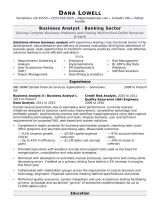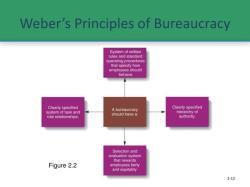What are the principles of business grammar?
Effective communication in a business setting relies on clear and precise language. Adhering to principles of business grammar is crucial for conveying ideas accurately and maintaining a professional image. Here are some key principles of business grammar:
Clarity and Conciseness:
- Use clear and concise language to convey your message efficiently. Avoid unnecessary words and ensure that your sentences are straightforward.
Correct Spelling and Punctuation:
- Check for correct spelling and punctuation. Errors can detract from your professionalism. Use tools such as spell-check and proofread your documents thoroughly.
Consistent Style:
- Maintain a consistent writing style throughout your documents. Consistency enhances readability and reinforces a professional image.
Avoiding Jargon and Acronyms:
- While industry-specific terms and acronyms may be appropriate in certain contexts, avoid excessive jargon that may confuse or alienate readers who are not familiar with the terminology.
Active Voice:
- Prefer the active voice over the passive voice for stronger and more direct communication. The active voice emphasizes the doer of the action and is generally more engaging.
Correct Tense Usage:
- Ensure that you use the correct tense throughout your writing. Consistent tense usage contributes to clarity and coherence.
Proper Sentence Structure:
- Construct well-formed sentences with a clear subject, verb, and object. Pay attention to sentence structure to avoid confusion.
Parallelism:
- Maintain parallel structure in lists and series. This involves using the same grammatical form for items in a series to create balance and clarity.
Avoiding Redundancy:
- Eliminate unnecessary repetition and redundancy in your writing. Choose words carefully to convey your message without unnecessary repetition.
Subject-Verb Agreement:
- Ensure that the subject and verb in a sentence agree in number (singular or plural). Mistakes in subject-verb agreement can lead to confusion.
Consistent Verb Tense:
- Use consistent verb tense within a sentence or paragraph. Avoid unnecessary shifts between past, present, and future tenses.
Apostrophe Use:
- Use apostrophes correctly, especially in contractions and possessive forms. Misplaced apostrophes can change the meaning of a word or phrase.
Comma Usage:
- Employ commas judiciously for clarity and to indicate pauses. Be aware of common comma rules, such as separating items in a series or clauses in a sentence.
Avoiding Biased Language:
- Use language that is inclusive and avoids bias. Be mindful of gender-neutral language and cultural sensitivity.
Politeness and Professional Tone:
- Maintain a polite and professional tone in business communication. Choose words that reflect respect and professionalism.
Proofreading:
- Always proofread your documents before finalizing them. Check for errors in grammar, spelling, and punctuation to ensure accuracy.
By adhering to these principles of business grammar, you can enhance the effectiveness of your written communication in a professional context. Clear and accurate communication is essential for building trust, conveying information, and maintaining a positive image in the business world.
What constitute the foundational principles of business grammar?
Business grammar, while not a distinct set of rules from general English grammar, emphasizes clear, concise, and accurate communication in professional contexts. Here are some foundational principles that underpin effective business grammar:
Clarity and Concision:
- Use active voice: Active voice makes sentences clearer and more direct, placing the subject performing the action at the forefront. ("The team analyzed the data" vs. "The data was analyzed by the team.")
- Avoid jargon and technical terms: Use plain language that your audience understands. If technical terms are necessary, define them clearly.
- Strive for brevity: Cut unnecessary words and phrases to keep your writing focused and impactful.
- Use parallel structure: This creates rhythm and clarity by structuring sentences and phrases with similar grammatical elements. ("We will analyze the data, draw conclusions, and present our findings.")
Accuracy and Professionalism:
- Maintain subject-verb agreement: Ensure the subject and verb in a sentence agree in number (singular/plural).
- Use appropriate tenses: Choose the correct verb tense to accurately convey the time frame of your message.
- Proofread carefully: Check for typos, grammatical errors, and punctuation mistakes before sending any communication.
- Maintain consistent formatting: Follow company style guides or industry standards for document formats and punctuation.
Courtesy and Respect:
- Use formal language: Avoid slang, contractions, and informal expressions in most business writing.
- Use inclusive language: Avoid gender bias and discriminatory language, ensuring your communication is respectful and inclusive.
- Use respectful tone: Be mindful of the recipient and their position when choosing your tone and language.
- Use positive language: Focus on solutions and possibilities rather than dwelling on problems or negativity.
Additional Tips:
- Read and analyze effective business writing: Learn from examples of clear and concise business communication.
- Utilize grammar resources: Dictionaries, grammar guides, and online tools can help you identify and correct errors.
- Seek feedback: Ask colleagues or mentors to review your writing and provide constructive criticism.
By focusing on these foundational principles, you can develop strong business grammar skills that will enhance the clarity, accuracy, and professionalism of your communication in any professional setting. Remember, effective business grammar is not just about avoiding errors; it's about crafting clear, concise, and respectful messages that achieve your desired results.
I hope this provides a helpful overview of the foundational principles of business grammar. Feel free to ask if you have any further questions about specific aspects or want to delve deeper into any of these principles.













